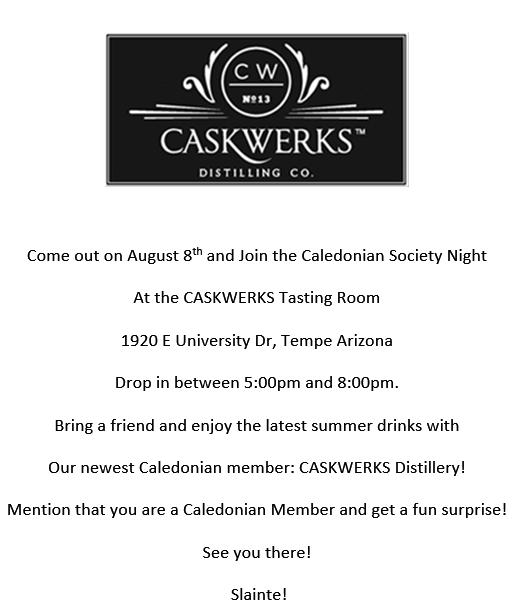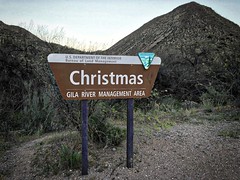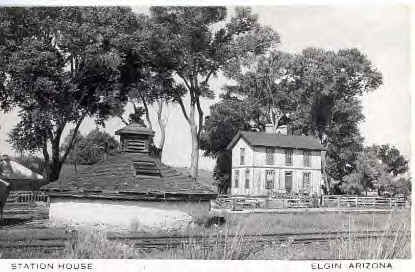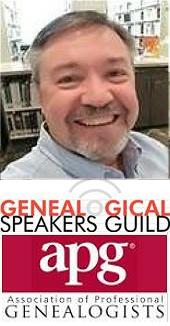Caskwerks Tasting - August 8
|
The CSA members who attended the May meeting at the Caskwerks distillery and tasting room in Tempe must have behaved themselves and made a good impression – because we’ve been asked back.
Thursday (8 August) the distillery owners have invited us to come along to their premises at 1920 East University Drive, Tempe, between 5pm and 8pm. Introduce yourself as a Society member and apparently a surprise awaits.
Caskwerks has become the Society’s newest member and we’re delighted to welcome the owners into the CSA family.
So last time we either didn’t drink enough and were supremely well-behaved, or we drank so much we boosted the profits. Let’s do the same again this time.

|
Back to top  |
President's Letter
David McBee, President
As hot as it is and so many have fled the valley, we decided to just have a casual get together at Caskwerks Distillery on 8/8. No program, just time together with a dram or two….
The Flagstaff Games were great and one of the best attended that I have been to. The new location is a hit. Good music, good friends, and a few new members that want to get actively involved. A good weekend until someone let a campfire get out of hand.
.jpg) The Prescott Games are on September 28th but I will be at a wedding in Maryland. Make a good showing for us up there in the high valley. The Prescott Games are on September 28th but I will be at a wedding in Maryland. Make a good showing for us up there in the high valley.
Enjoy the new rains. It almost feels like Scotland. Well, maybe not…
The next cycle of events will be starting soon. Games planning, Scotstoberfest, St Andrews dinner, Christmas at the castle, Burns Dinner….. Pitch in, let’s have some fun.
David |
Back to top  |
Arizona Scottish Trivia
It’s the middle of the Arizona summer and it feels very much like the silly season. The Burns Supper and Scottish Games are a few moths away. So why not look at some quirky, Scottish-related trivia around the state?
Most of us get out of the Phoenix heat and take weekend trips to cooler and more rural parts of Arizona. In doing so we pass through towns and villages that owe their existence to a large extent on pioneering Scots. Here are a few places you might not have realized had a Caledonian influence.
.jpg) Douglas is a town on the Mexican border and as its name suggests could hardly have anything other than a Scottish connection. It was founded by a mining engineer named James Douglas. He was born in Quebec but his parents Dr James Douglas and Elizabeth Ferguson, were both from Edinburgh. In fact, his father’s medical claim to fame was that he could amputate a limb in less than a minute. Douglas is a town on the Mexican border and as its name suggests could hardly have anything other than a Scottish connection. It was founded by a mining engineer named James Douglas. He was born in Quebec but his parents Dr James Douglas and Elizabeth Ferguson, were both from Edinburgh. In fact, his father’s medical claim to fame was that he could amputate a limb in less than a minute.
James found his way to the Arizona border and became involveed with a company called Phelps Dodge. He negotiated the purchase of the hugely profitable Copper Queen Mine in Bisbee, earning a fortune in the process.
Prof Douglas, as he was known, became one of the richest mining company bosses in Arizona at the turn of last century. His son, also James, followed in his footsteps, but was more of an Arizonan than a Scottish figure, reveling in the nickname ‘Rawhide Jimmy.’
Lochiel – or what’s left of it – also sits close to the Mexican border. Again, given its name, it could only be Scottish. Cameron of Lochiel is historically one of the largest and most powerful clans in the west Highlands of Scotland.
The men who gave the little town its present-day name were ranchers Colin Cameron and his brother Brewster. The siblings were from Pennsylvania and Colin was tempted by a 17,000-acre Spanish land grant to move to the south-west in 1882 to establish the San Rafael Cattle Company. In time he became a cattle baron and members of his family joined him.
Colin was intensely proud of his Scottish heritage and changed the name of the settlement from Luttrell to Lochiel. It is now a virtual ghost town but remains a little bit of Scotland on the Mexican borderland.
.jpg)
Lochiel Border Station, closed in the 1980's
Oracle was one of many Arizona villages founded by prospectors. Buffalo Bill was an early mining boss and apparently dressed up as Santa Claus one Christmas. But the three founders were all mining pioneers, a Canadian, and Irishman, and a Scot by the name of Alexander McKay.
McKay was from Perth in Scotland and built the first house in what became Oracle. He discovered the Christmas and New Year gold mines, named after the days on which he made the finds.
 McKay also made a remarkable piece of American history. In 1926, at the age of 84, he was caught with three gallons of bootleg corn whisky and sent to the jail in Tucson. McKay also made a remarkable piece of American history. In 1926, at the age of 84, he was caught with three gallons of bootleg corn whisky and sent to the jail in Tucson.
Two months later President Calvin Coolidge ordered that he be released because of his services to Arizona economy, and he became the first person in America to receive a Presidential pardon in connection with a Prohibition offence.
Elgin is a historic city in Scotland as well as a village in Arizona’s beautiful Sonoita Valley. There simply must be a connection. Believe it or not, there are 24 Elgins in the United States, most of which are named after the Scottish town, others because of the Elgin National Watch Company.

The Elgin in Arizona is now at the center of prosperous wine-making region, so for that reason alone we should claim it as ours.
Duncan – an old mining town near the New Mexico state border – owes its origin to the Scottish-based Arizona Copper Company which sprung up in the late 1800s. Scottish capital and investment was responsible for much of the development in the area, Including the financing of a narrow-gauge railway between Clifton, Arizona, and Lordsburg, New Mexico.
The managing director of the Copper Company at the time was a man with the distinctly Scottish name of Duncan Smith, and it was he who gave the town its name.
.jpg)
There are no doubt many more and perhaps we can discover more Arizona Scottish place name trivia in future editions.
|
|
|
Scotland's Hidden Gems - The Museum of Flight
Iain Lundy
Have you ever sat inside one of the supersonic Concorde airliners that used to make transatlantic flights between the US and Europe? If not, then pay a visit to a remote part of Scotland’s east coast and for only £12.50 ($15) you can experience the thrill of stepping on board one of these incredible machines.
Scotland’s Museum of Flight sits in a disused airfield near the town of North Berwick, about 33 miles east of Edinburgh. It houses the only Concorde in Scotland – a plane that flew 8,064 flights at twice the speed of sound. When British Airways retired the aircraft in 2003, the Museum gratefully took possession of it.
.jpg)
Known as Scotland’s Concorde, she flew for 25 years to destinations including New York, Paris, Auckland, and Barbados. Now visitors can take a stroll through the aisles and get pictures taken on seats that once cost more than £6,000 a flight.
The museum is located at the village of East Fortune and the Concorde is not the only draw for aviation buffs. A Hawk T.1A flown by the RAF Red Arrow’s display team is a major attraction, as is an old British Airways Boeing 707.
.jpeg)
.jpg)
Many other famous aircraft names from the golden age of flying dot the hangars and runway areas at East Fortune. They include a de Havilland Comet; a Hawker Siddeley Harrier; a Messerschmitt Komet; a Piper Comanche; a Vickers Viscount; a Panavia Tornado; a Bristol Bolingbroke; and the Avro Vulcan bomber shown below.
.jpeg)
Back to top  |
Research Your Scottish Ancestry
|
|
 Tax Records: Wealth of our Ancestors Tax Records: Wealth of our Ancestors
by Robert M. Wilbanks IV, B.A.
Chief Genealogist & Historian, C.S.A.
genealogy@arizonascots.com
There is an old expression that “nothing is certain in life except death and taxes.” So, let’s talk about taxes. Tax records in genealogy research that is.
Taxation dates far back to ancient societies. The basic principles of taxation are as old as human society, dating thousands of years into the past. Taxes are levied to pay for centralized government services, as well as to cover the cost for police, fire or the military, and more.
Fair taxation in England during the middle ages was often an issue of contention in society. A poll tax was a frequent form of taxation on every adult within a jurisdiction. Property and church taxes was also a common practice. Peasants who did not own land still had to pay property taxes on the land they rented or worked. They were also obligated to donate 10% of their labor or produce to the church.
As England established colonies around the world, taxation on these colonies also began to become issues of contention as the colonists were forced to pay hefty duties on staples, as well as various forms of poll taxes, income taxes, property taxes and more.
With the formation of a new government, the United States levied few taxes as it did not maintain a large standing military, instead relying on the local militia as the need arose. Also, the central government, national, state and local, in general was smaller. The primary form of taxation was on property, including livestock, and other, with a poll tax being another annual form of taxation. However, after the Civil War, in order to pay accrued debts brought out by the war, the government briefly experimented with an income tax from 1862 to 1866. In 1917, the personal income tax was enacted as an annual method of tax collection from the citizens.
United States tax records usually are found in county records, held by the county clerk. So, learning about your ancestor’s locality and the types of taxes taken, and whether those records still exist and are available is very important.
Various records exist for taxation throughout the history of Scotland. Originally, revenues came from property owned by the crown. During times of financial need, the government levied differing kinds of national taxes, often separate from local taxes collected for local services and poor relief. After the unification of England and Scotland in 1707, Scotland was levied many of the same taxes as England.
Meanwhile, some unique types of taxes collected, and for which many records still exist, include the following:
-
Hearth Tax was literally a tax of 14 shillings on every hearth in the kingdom, paid by tenants and landowners. This tax occurred from 1690 to 1695.
-
Land Tax Rolls, also known as cess rolls or valuation rolls, was a tax collected from 1645 to 1831 in Scotland. The rolls listed the owners of landed estates and assessed the rental value of their lands.
-
Poll Taxes were levied in 1694, 1695 and 1698. It was levied on all men over the age of 16, except for the extreme poor.
-
Apprenticeship Tax was levied from 1710 to 1811 on the money a master received for an apprenticeship indenture, due within a year the term of indenture expired.
-
Death Duties is a tax levied on the estates of the recently deceased. This began in 1804. Relationships, date of death, and other information.
.jpg)
Many, many other taxes in the 1700s include: Window Tax (1747-1798), Commutation Tax (1784-1798), Shop Tax (1785-1789), Cart Tax (1785-1798), Carriage Tax (1785-1798), and many other various taxes.
Tax records make a great substitute for land and census, and other records. Tax records vary in content, depending on the purpose of the record. Information might include name, occupation, description of property and belongings, number of males over 21, number of slaves, farm animals, and much more. In addition to learning about an ancestor’s inventory of assets and overall wealth, one of the great benefits of tax records is that it can be an annual record of an ancestor between census years. Most notably, their sudden discontinued appearance could indicate migration, or death, etc. Also, widows and children can appear in tax records as well. And, you can determine a year of birth when a male within a household suddenly appears and become taxed, usually for the first time once he reaches the age of 21.
Many of the U.S., Scotland and England tax records can be found in microfilmed copies of the originals at the FamilySearch Library in Salt Lake City. Search the FamilySearch catalog by locality: www.familysearch.org/search/catalog
For more information about taxation and available records in Scotland, including county-by-county availability, visit the following page of the “National Records of Scotland”: www.nrscotland.gov.uk/research/guides/taxation-records
This is another of a series of articles in which I show you the basics of searching for your family history, discussing the use of family records, public records, and online resources nationally and internationally, etc. The previous articles are now available on the Genealogy Section of this website. See “Genealogy” in the menu options at the top of the web page.
|
Irish Famine Commemeration
Iain Lundy
It has just been announced that the 2019 International Commemoration of the Great Irish Famine is to be held in Phoenix on Sunday 3 November.
The Famine hit Ireland in the middle years of the 1800s and caused the deaths of more than one million people. Millions more fled the country, many to the United States and Canada. Of those who landed here, thousands were ‘Scots-Irish’, people whose families had moved from Scotland to Ireland, then Ireland to America.
.jpg) The massive upsurge in genealogy allows many to trace their ancestry through the Scots-Irish and back to the original family homes in Scotland. Most, but by no means all, are traceable to the south-west of the country, from Glasgow down to the Dumfriesshire area. The massive upsurge in genealogy allows many to trace their ancestry through the Scots-Irish and back to the original family homes in Scotland. Most, but by no means all, are traceable to the south-west of the country, from Glasgow down to the Dumfriesshire area.
More details about this year’s celebrations will be announced soon, and it is an opportunity for CSA members to join with our Irish friends.
Image: Famine Memorial in Dublin
|
|
Julu Gathering Report
The July meeting of the Society was an interesting and thought-provoking video by the charismatic Scottish presenter Neil Oliver covering the period of
the 1707 Union of Scotland and England, and the two failed Jacobite Rebellions.
Entitled ‘Let’s Pretend’. it was the latest DVD in Oliver’s series ‘A History of Scotland’. Oliver’s presentation style is colorful to say the least, and he was able to explain in detail the political shenanigans that took place to ensure that Scotland ‘lost’ its freedom and became part of a new country – Great Britain.
The show posed many questions, some of which are still relevant. To what extent did Scotland go willingly into the union with England? Not too much, if Oliver’s narrative is to be believed. He portrayed Scotland as a nation kidnapped by its larger neighbor, albeit with help from complicit Scottish noblemen.
And what of Bonnie Prince Charlie and his 1745 Rebellion? Was he a hero who led the Scots to great victories over the English foe? Or a bungling military leader who fled after the disaster of Culloden, skulked around the Highlands dressed as a woman, and sailed back to Continental Europe. Charlie ended his days a hopeless alcoholic
Given the current Scottish independence debate, the video provided much food for thought. Oliver’s DVDs have been a staple of the Society’s summer meetings for the past four years and have always proved popular and entertaining. |
|
COMING EVENTS and Highland Games in Arizona and Nearby
| August 8 |
Caskwerks Tasting Event
Tempe
|
| September |
Possible Pub Crawl
Valley
|
| September 28-29 |
Prescott Highland Games
Prescott AZ
|
| October |
ScotsToberfest
Haus Murphy, Glendale
| |
| November 1-3 |
Tucson Highland Games
Tucson AZ
|
| November (late) |
St. Andrew's Day event
ICC ?
|
| December |
Christmas at the Castle
Irish Cultural Center
|
| March 7-8, 2020 |
56th Annual Phoenix Scottish Games
Steele Indian School Park, Phoenix |
|
|
|
Membership Reminder
Membership dues for 2019 are:
- - $30.00 single and $50.00 Family (at the same address)
It's easy - just jump to the Membership Page for information.
Society Gatherings
Membership gatherings are often held on the second
Thursday of each month, many at the Irish Cultural Center,
1106 N. Central Ave., Phoenix - others around the Valley - usually beginning at
6:30 pm. Please check our website for further details.
|
|
|